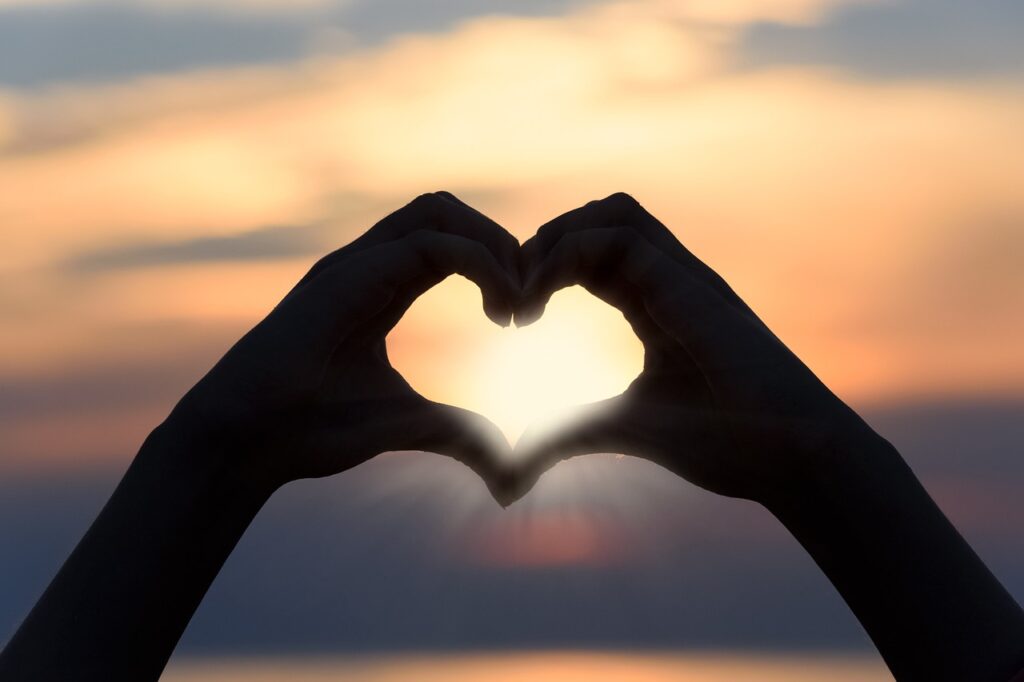A reflection on why we crave it, fear it, fight for it, and sometimes lose ourselves in it.
Love.
It’s such a small word for something that carries so much weight. We fall into it. We search for it. We grieve when it leaves. We shape entire lives around it. But for something so common, something we all experience or at least long for, love remains one of the most mysterious forces in the human experience.
The dictionary defines love as an intense feeling of deep affection. Psychologists often categorize it into types like romantic love, companionate love, familial love, self-love, or unconditional love. But even those words fall short. Love isn’t just one thing. It changes shape depending on who we are, what we’ve been through, and what we need.

The Right vs. Wrong Kind of Love
I’ve come to believe that love, when it’s right, feels like safety. It feels like being seen, truly seen, not just for your strengths or your beauty or your potential, but for your flaws, your fears, your mess, and being loved anyway.
The right love makes you feel grounded and brave at the same time. It challenges you to grow but never asks you to shrink. It gives you a sense of home, even when life feels chaotic.
But the wrong kind of love can be devastating. It can make you feel small, scared, and invisible. It turns your self-doubt into a daily companion. It makes you question your worth, your truth, and even your reality. And the scariest part is that even the wrong kind of love can feel addictive. Because at least it’s something. At least you’re not alone.
Why Do We Crave Love So Deeply
So here’s the question I keep coming back to. Why does love hold so much power over us? Why do we crave it like oxygen? Why do people stay in broken relationships just to feel loved? Why do people kill, die, and lose themselves all in the name of love?
Science offers part of the answer.
From a biological perspective, love is deeply wired into our survival systems. When we connect with another person, our brains release a flood of chemicals that make us feel pleasure, attachment, and trust.
Dopamine is the reward chemical. It gives us feelings of joy and motivation
Oxytocin is often called the love hormone. It is released during touch, intimacy, childbirth, and bonding moments. It creates a sense of closeness and emotional safety
Serotonin helps regulate our mood and sense of well-being. Ironically, it can drop during the early stages of infatuation, which is why we sometimes feel anxious or obsessive
Endorphins relieve pain and create a sense of calm happiness
Together, these chemicals create an emotional high that explains why falling in love can feel so powerful. Neuroscience has even shown that the brain regions activated by romantic love are the same ones triggered by addictive substances.
Love is nature’s way of keeping us connected, making sure we form strong bonds, raise our children, and survive. But that only explains the biology. There’s something deeper going on.
The Deeper Longing Beneath Love
Maybe we don’t just want to be loved. Maybe we want to be understood. We want to be chosen. We want to feel like someone knows us completely and still decides to stay.
We want someone to say, I see all of you, the messy parts, the scared parts, the hopeful parts, and I’m not going anywhere.
That kind of love is rare. But I think it’s what most of us are searching for. And when we don’t have it, we feel incomplete. We settle. We stay in relationships that hurt us because being alone feels worse. We confuse love with attachment. We confuse pain with passion. We confuse control with care.
I have a friend who is so afraid of showing her vulnerability. She jumps from one relationship to another because the moment it gets too real, too close, she runs. She hides behind strength, behind control, behind perfection. She once told me she’s scared to show her weakness because she’s afraid it will be used against her. And honestly, I get it. I understand that fear. But even as her friend, it’s been hard to truly get close to her. If someone who loves her as a friend feels that wall, how can a potential partner truly reach her heart
How can someone fall in love with someone who won’t let themselves be seen
That makes me think about the phrase “falling in love.” The word fall is built right in. Falling means risk. It means losing control. It means you might get hurt.
But maybe that’s the point.
Falling in love is like learning how to ride a bike. You wobble. You lose your balance. You fall. You scrape your knees and maybe even cry. But eventually, you learn how to ride. You get better at it. You begin to trust the process. And even though you know you might fall again, you keep going. Because once you feel the wind on your face and the freedom of moving forward, it’s worth it.
So What Is Love
Maybe love is all of it. The chemistry. The pain. The beauty. The fear. The lessons. The hope. Maybe it’s the most human thing we do, to try again and again to open our hearts to something that might hurt us, but might also heal us.
What I do know is that the right love doesn’t complete you. It doesn’t fix you. It doesn’t save you. The right love simply walks beside you. It gives you room to breathe. It reminds you that you were already whole, and then it adds to that wholeness in beautiful, surprising ways.
And if we’re lucky enough to find that kind of love, we should protect it. And most importantly, return it.
What do you think love is
Is it a chemical reaction
A soul connection
A human need
Or maybe all of the above
I’d love to hear your thoughts

Leave a Reply